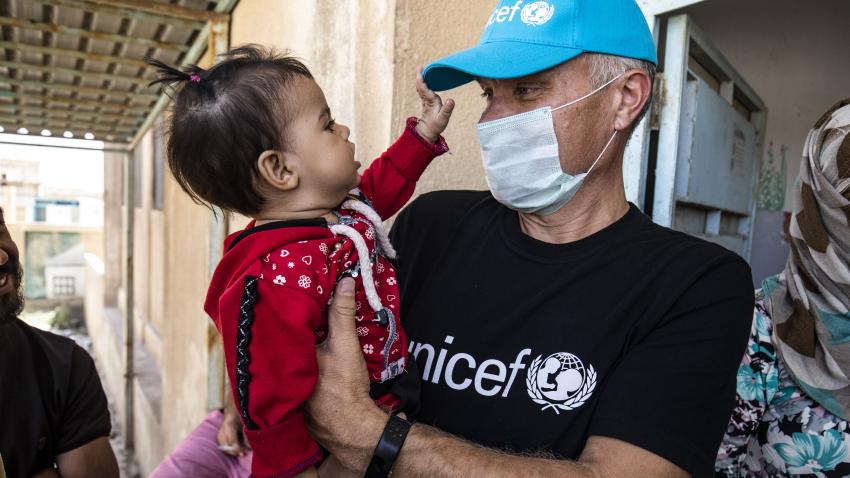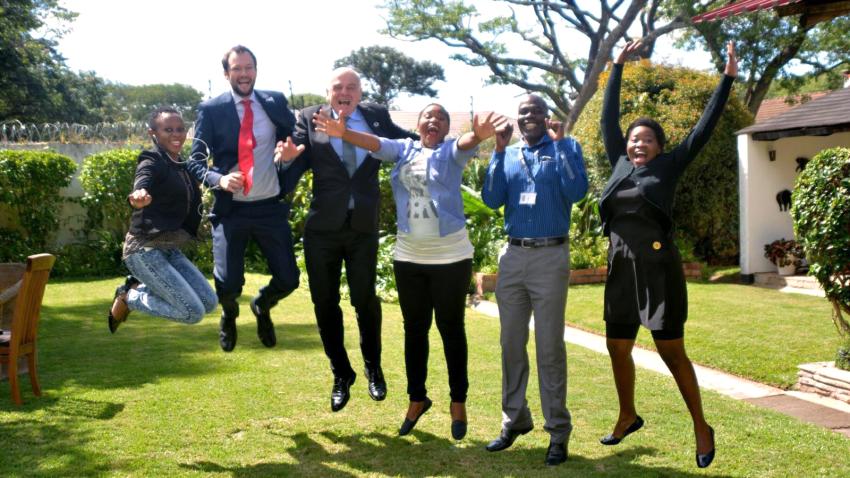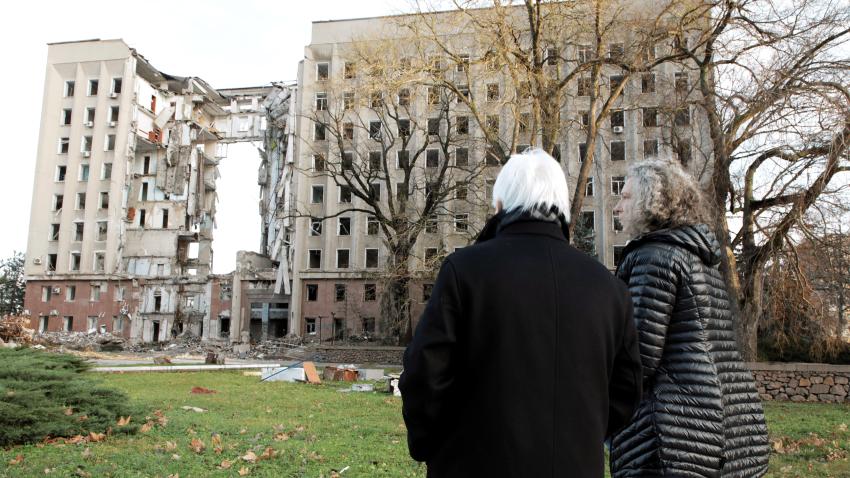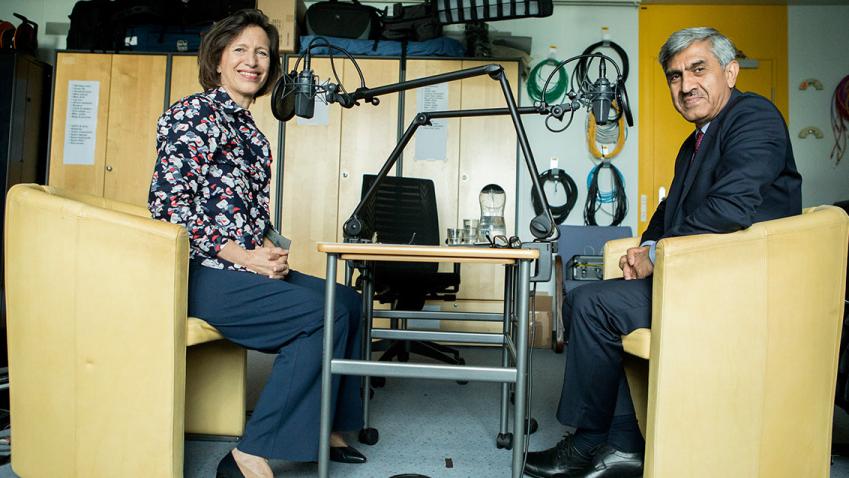What would it take to make that happen?
Bo Viktor Nylund has always been drawn to complex, difficult places. As the Representative of UNICEF in Syria, he is a passionate advocate for the rights of children growing up in one of the world’s most thorny and protracted crises.
“When I meet with children, I just see that there's always that glimpse of hope in their eyes and that drive to make a future for themselves.”
Children continue to bear the brunt of Syria’s decade-old conflict, with millions of childhoods shattered through destruction, displacement, and death. Meanwhile, thousands of children of Islamic State fighters, some as young as 12, are being held indefinitely in camps in the country’s north. In this episode, Bo Viktor Nylund reflects on their grim plight and his determination to do right by every Syrian child hoping for a better future through education.
“The situation of the children who have been affiliated with Islamic State is basically a time bomb in the making.”
Transcript and multimedia
Bo Viktor Nylund 0:00
We tend to often think that everything is gloomy, and everything is just sad. At the same time, children will look for that positive aspect in, you know, whatever rubble they're living in or playing. I mean, when I meet with children, I just see that there's always that glimpse of hope in their eyes and that drive to make a future for themselves.
Melissa Fleming 0:30
And what struck me about Bo Viktor is that it really seems personal. He speaks with so much love about his own three children, but also about the children that he is encountering and trying to help. The joy he feels when he's able to do something. It's a real passion. Bo Viktor Nylund works for the UN's Children's Fund, UNICEF, in Syria, a country torn apart by war. From the United Nations, I'm Melissa Fleming. Welcome to Awake at Night. Bo, you work in Syria. When it comes to this plight of children in Syria, what is keeping you awake at night right now?
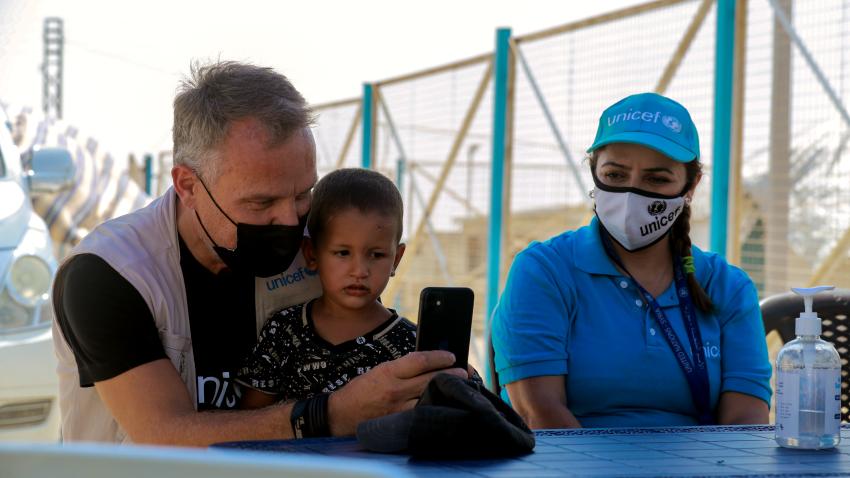
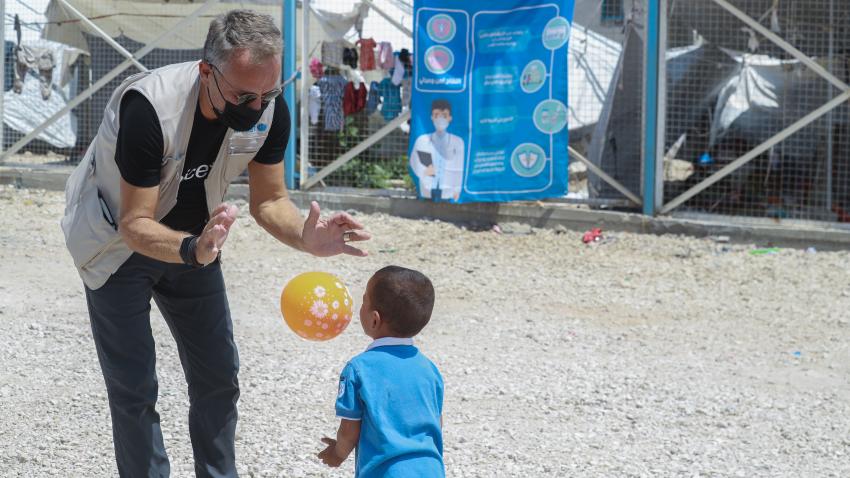
Bo Viktor Nylund 1:24
Well, Melissa, I think many things in a way. The fact that this country and its children have already for 11 years been living this war. Then COVID came. And just the level of deprivation and poverty were even further emphasized for people on the ground. And then that wasn't enough. Then you had the explosion in Beirut, which basically ripped apart the economies of both Lebanon and Syria. And now, with Ukraine, the prices of fuel, the prices of wheat. The prices are rising of those two commodities. And you know, how long can people be resilient and continue to survive? So, I would say that's the kind of big picture thing that permeates the whole country and its population. Then the more focused one is really that situation of the children in the north and east, who have, in one way or another, been affiliated with Islamic State. And you know, it's basically a time bomb in the making. And so, you have some 10,000, children, along with their mothers, that are just languishing in the camps, in the prisons, in the detention facilities in the Northeast. And every day around them, you have Islamic State. And some are being trafficked, some go missing, and others are just, of course, the perfect ground for breeding new terrorists. And that's, to me a huge concern, not just for me, but also for my own children. And you know, for society as a whole. You know, where will these youngsters end up?
Melissa Fleming 3:15
You came into this situation in Syria, about a year and a half ago. What brought you here? And maybe, just what struck you right away when you arrived?
Bo Viktor Nylund 3:27
The calling has been that I need to work in some of those really complex and difficult situations. Because that's what I really want to do in terms of how I can be most of use. What struck me as I came in. I mean, on the one hand, extremely vast destruction of infrastructure across the country. Cities have been blown apart. You know, buildings are just… You only see the cement on the ground. And, you know, that's one part. You know, families have lost their homes, the education facilities, the health infrastructure. That too has been vastly destroyed. UNICEF has been repairing about 100 schools a year, which is amazing. And it's a huge result over the last several years. But if we continue at that pace, it's gonna take 30 years before we have the same infrastructure in place. When you're looking at, for instance, two and a half million children out of school. Can kids wait that long?
Melissa Fleming 4:32
What do children need most?
Bo Viktor Nylund 4:35
Well, I mean, on the one hand to survive, you know, you need clean water. You need health care, nutritious food. And then of course that’s survive. But in order to even a little bit thrive, you need stimulation. You need education. You need to be able to have friends and grow up in a society where you have some level of normalcy. And unfortunately, that's not really the case for very many kids in Syria.
Melissa Fleming 5:03
What strikes you about the children that you meet in Syria who have maybe only known war and conflict?
Bo Viktor Nylund 5:11
Well, I think we tend to often think that everything is gloomy, and you know, everything is just sad. At the same time, children will look for that positive aspect in, you know, whatever rubble they're living in or playing in. So, I mean, when I meet with children, I just see that there's always that glimpse of hope in their eyes, and that drive to make a future for themselves. There's this one boy called Moyers, who I visited, must be about six months ago now, in rural Damascus. And he had been hit by a rocket. And so, he had lost both his legs four years ago, in Ghouta, which is a very well-known area of huge warfare with a lot of destruction. And I visited his home, and he's now 14 years old. And again, it's that resilience and the way that, you know, you cannot take away the spark of life from a child. And he has decided that he wants to be an electrician. And so, he spends some of the cash grant that he gets to buy electrical equipment, and he goes to school. So, you know, he's not doing this as a as a job that is taking away from his education. But he does help prepare lamps for the community now and gets a little bit of cash out of that. And then, you know, you can really see the spark in his in his eye, and how he wants to create a future that he's able to create.
Melissa Fleming 6:52
Kind of living in the moment and finding the joy. It's always struck me too when I visited places like Syria or in bleak refugee situations where like, all the troubles seem to be on the shoulders of the adults. And the children somehow managed to find the resilience. But I can imagine, then for an organization like UNICEF, you know, the real challenge is to give them that infrastructure that you mentioned that will enable them to build a future. I remember when I was working for UNHCR, meeting a young Syrian refugee, in Lebanon in the Bekaa Valley. And going into his tent. And I always asked refugees what they took with them when they fled the war. And he went back into the other part of the tent, came back with a piece of paper covered in silk. And then he took the silk off, and he presented me with this document, which was his high school diploma. And he said, I took my high school diploma, because my life depended on it. Without education, I am nothing. And that was kind of at the beginning of the war.
Bo Viktor Nylund 8:07
Melissa, these exams for the children are just so tremendously important because it is their pathway towards them getting further education. And, you know, before the war, the Syrian children… school attendance was more than 94%. So basically, enrollment and, you know, children staying in school, was high. And so, the education system has been always valued hugely. And now too we see with so… The big exams are your [Grade] 9 exams and your [Grade] 12 exams. And when we're organizing those exams in the country, of course, in areas that are controlled by the government, is easy enough. But then also children that are in some of the areas that are controlled by armed groups. They want to come out and take those exams. And you cannot imagine the dangers that they go through in order to take those exams. I met a few of those children up in Qamishli, a couple of months ago, who had come to take the exams. And they basically came from this area in the north, which is under Turkish occupation. And they had to pay to get smuggled through checkpoints. And then, you know, really dangerous areas. You know, war zones, that the active conflict areas that they have to pass. But it's to that extent that they really wanted to come and take the exams. Because, as the young man that you had met was saying - this is their future.
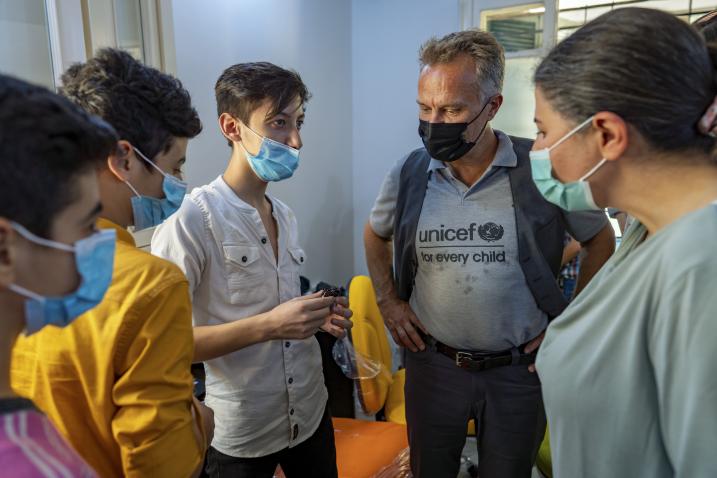
Melissa Fleming 9:42
You said that you're building 100 schools a year. And if you could have all the resources in the world, what would you do for the children of Syria?
Bo Viktor Nylund 9:53
I think for me, it's you know, if I had unlimited resources, it is about investing more into that infrastructure that is at scale. And so rebuilding water systems, rebuilding schools. And you know, what else does the water system need in order to have clean water? Including things like sodium hypochlorite, which, you know, for me, I had never even thought about as an important element of humanitarian action. But that water needs to be purified in order for children to be able to drink it, and their families. And so, you know, building that infrastructure as well, that can help provide and produce the sodium hypochlorite. So, it is about really those investments because that's what UNICEF is good at. And that's how we can serve as many children as possible. And another third example would be the infrastructure for our immunization, because that's also our specialty. And we've just been immunizing against polio in Syria - 45,000 kids under five years. Just in these past several days, there has been a case in Israel. And you know, polio is very treacherous, and travels very easily. And while we as human beings, create borders, unfortunately, those don't work for diseases. They travel across. And polio is a very, very dangerous illness in terms of how quickly it travels. And then the implications on how children get sick.
Melissa Fleming 11:34
You mentioned this already when we started speaking, but I'd like to delve a little bit deeper. This must be one of the most difficult issues that you deal with. That of seeing, visiting, trying to help children in detention because of their associations with Islamic State. These are often the children of IS fighters. Can you describe what you've seen?
Bo Viktor Nylund 11:57
We were allowed to visit some of the boys that were in about six or seven cells that I saw. And these boys had prison gear on. These kind of brown, orangey outfits. And all of them looking very frail, and skinny. And some of them with wounds. All of them also very untidy. We were not allowed to speak to them, but some of them whispered to us that, ‘We haven't had food, we need medication, we haven't had water’. And I looked into six or seven of those cells with about maybe 60, young boys in each of them. And in this situation, I mean, for us now, what we have been discussing with the local authorities is really to find now a mechanism. You know, the time has come. Every day counts. It's three years. Been too long already. And, you know, now work with us to move some of these children out because there is another facility that they could make use of. And starting with the youngest, the wounded, ones that have maybe other issues, mentally or whatever that might be. And then we could start working on those individual case files supporting the local authorities to really build up, you know, where are they coming from. Where could they go back to. And what kind of legal support do they need in order to, you know, address those cases in their countries of origin. Getting legal advice for them, and so forth. Because keeping them there, it's simply not the answer. We really have to find a way to get them out.
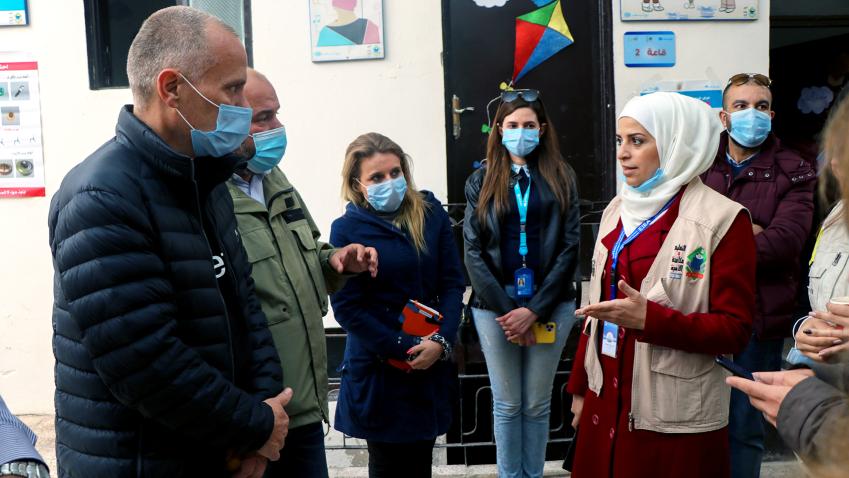
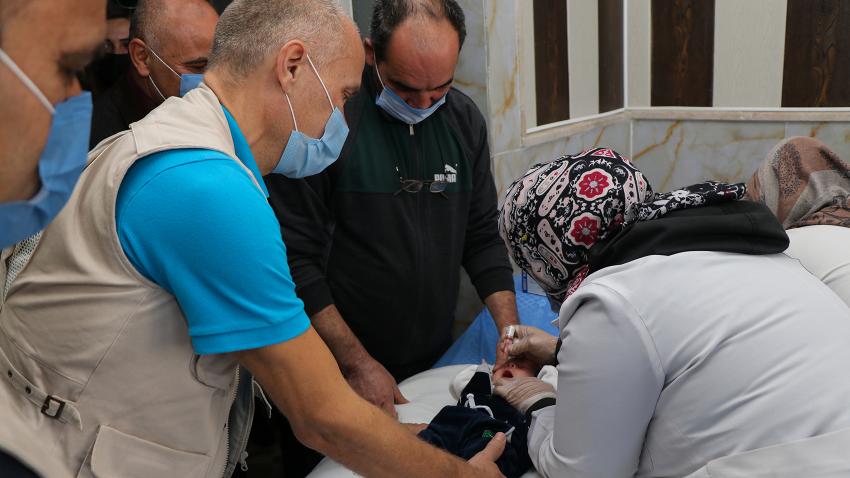
Melissa Fleming 13:42
It sounds like an awful scene that you saw 60 children in one cell. Is there an image that is just haunting you? And can you describe it.
Bo Viktor Nylund 13:56
Well, I think what really makes me, yeah, haunted in a way, is that those boys haven't had a haircut for the past year or a shave. And the level of nutrition… You look like that because you haven't been well cared for, for a long period of time. And that's why it's not about the number. It's about how can we do that to human beings, but especially to children.
Melissa Fleming 14:33
I just wonder when you think about children, those children you met, those boys you met or at least saw in the detention centre. And then the other children who are in camps and who have been born, you know, since ISIL was defeated and who have no idea what they’ve been born into. How can you help repair the damage of children like that?
Bo Viktor Nylund 15:04
Well, you can do some patchwork by running activities in the camps. And, you know, we do, and many other organizations do. UNICEF serves Al-Hol and Al-Roj camp with water, with some education, with nutrition services, health services. And so, and some child protection activities, including, you know, activities for the children that, you know, allow them to have some kind of play and recreation. But it's not a place to live, you know. These sites are during the summer… First time I visited in Al-Hol camp was in August after I had just arrived in Syria in 2020. And it was 50 degrees. And summers are just extraordinary out there. And these people living in tents. And you can imagine living in a tent with the sun gazing and 50 degrees outside. It’s hell on earth. And in the winter, freezing cold instead. And so, there's a very small window where, you know, it's bearable. So that's, you know, one thing. But then, you know, the level of services could never be sufficient for a child to actually grow up there and be able to somehow thrive into becoming something productive. Or becoming a young person who then actually can start contributing towards something. So, the only solution is to get them out of there. It has to be. And they're exposed, and ISIL is all around those camps. Some are being trafficked, some are being taken away, some are being killed even. And those camps just have to be emptied.
Melissa Fleming 16:55
You’re a father yourself with three children. What did they think when you told them that you were going to serve in Syria?
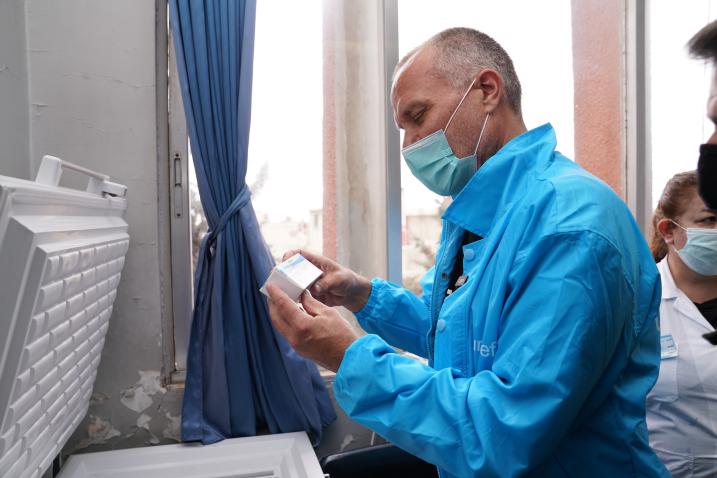
Bo Viktor Nylund 17:05
Yeah. I mean, in fact, my wife did tell me, you know, you do need to kind of discuss this with them. And also, you know, ask them what they think about it before you go ahead. And at least, I mean, they've never said that they're worried about, you know, me, in terms of my physical safety, and so forth. So, you know, I do try to have the conversation from time to time. Because, of course, I mean, we're on the front lines, also. I mean, whenever… Of course, we have good security systems in the UN and our security measures are excellent. At the same time, you know, I am very much a person who is, you know, at the frontline in the sense of it's our job to come as quickly as possible. And it's still dangerous. There's always the risk that you're targeted in one way or another. So, some parts of the country… It can be quite dangerous. I'm not afraid, though. It's not something that I… Actually, it's not one of the things that keeps me awake at night. And I think probably, you know, they feel that, you know, because I keep joking with them that I'll be around until I'm 100, at least. So, you know, maybe they also sense that, you know, because I'm not worried, they don't need to be worried as well.
Melissa Fleming 18:40
What made you decide to apply to work in Syria? Is there something about Syria that attracted you?
Bo Viktor Nylund 18:46
I don't know. This is my nature. I have looked to go to some of these most complex places. Just because it's complex, I'm interested in it. And then I think, you know, mixed also with the rich culture of the country, that I wanted to also have that as part of my life and experience it. Even if it's a war-torn country, there's still a very beautiful culture. And you know, the food and so forth. And so, it's combination of wanting to serve in one of the most complex contexts. One of the most dire in terms of the humanitarian needs on the ground, while also experiencing the people.
Melissa Fleming 19:33
So, I think you just mentioned the food in Syria. I think it is one of the best cuisines in the world. Just describe Syrian food.
Bo Viktor Nylund 19:45
So, they're very proud of their food and especially if you go to Aleppo in the north of the country. And you know, me being mainly vegan and definitely vegetarian, I haven't eaten red meat since 1984. It starts with starters. And they are so abundant and so many from hummus to baba ganoush to muhammara. And you know, all these dishes that are actually vegan. You know, except sometimes baba ganoush, they put yoghurt. And then you have the yalanji, the rice filled vine leaves. Different lentil dishes. You know, you can order a whole table full of just different starters. And often the starters are so many and so rich that by the time that the main cause comes, you actually don't need anything else. That's the case for me. Luckily, because the main cause generally is meat. Of course, I forgot the salads, where you have one that is based on parsley, which is tabouli and one that is based on salad leaves, which is the fattoush. And it's all fresh and delicious. So, it's a real treasure to be having a meal in Syria.
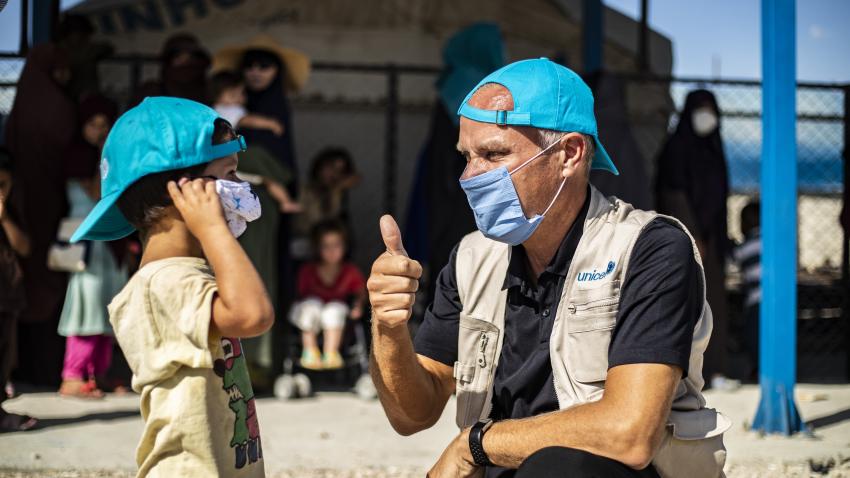
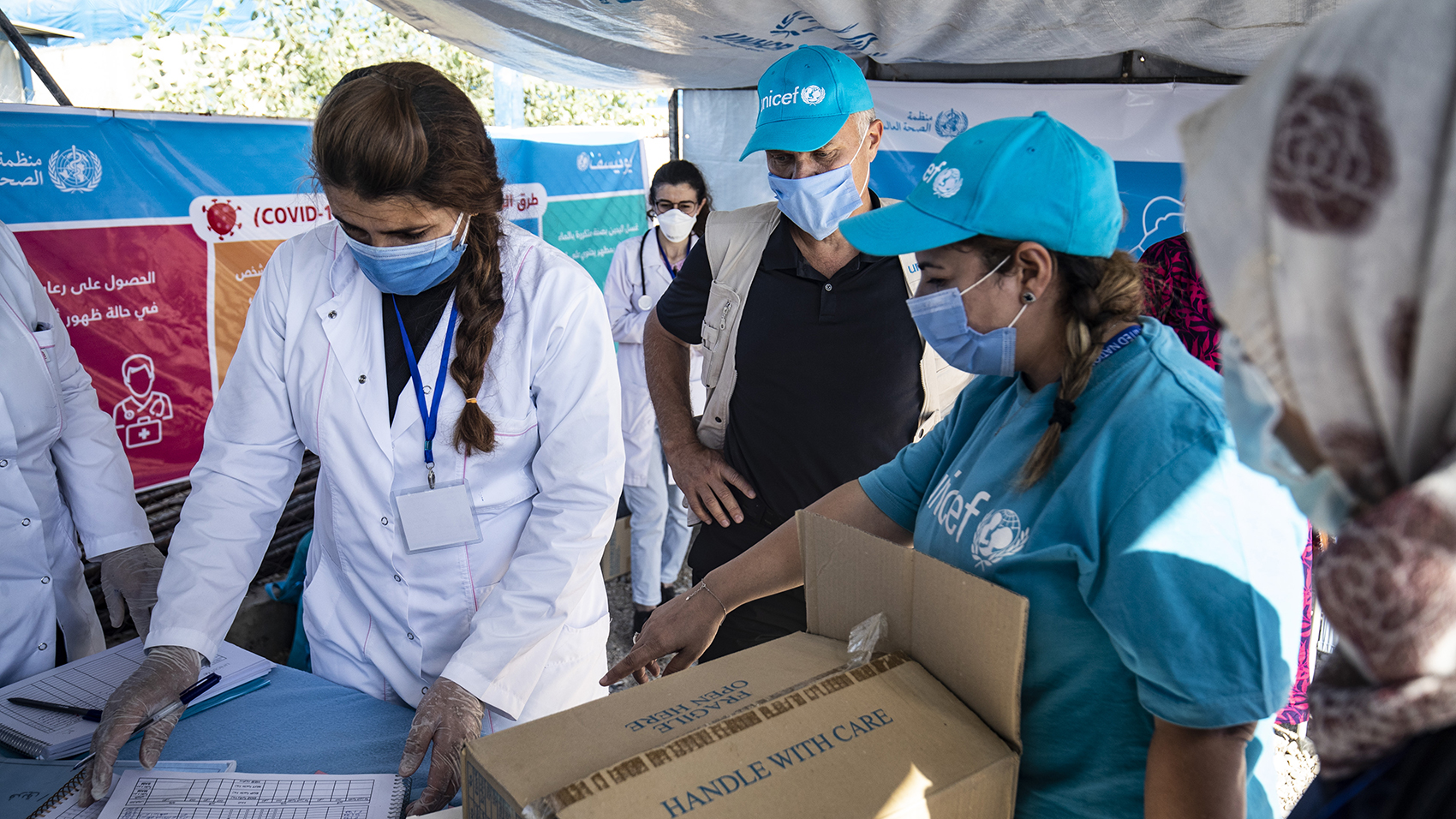
Melissa Fleming 21:03
Absolutely. Absolutely. How did you get into this kind of international work in the first place? You grew up in Finland. That's a long way from the conflict zones that you worked in. What kind of childhood did you have that launched you into such an international career?
Bo Viktor Nylund 21:25
I got to go to that brilliant Finnish education system. So, I had been interested in world affairs. But also, my town for some reason, you know, very small town, there was a teacher who always had organized that there would be a rotary exchange student. And so, I got exposed, you know, very early years, to these foreigners who would come and get to know our country. And, you know, go to school in Finland. And then I did the same. I went as an exchange student to the US. My … programme that was focusing on international law, and particularly on human rights law. And I remember in university, I was like thinking, why is there no textbook about all the conflicts in the world? I mean, I'd really like to read that and understand all the different conflicts. And of course, I realized that you cannot write such a book, because the next day, it's going to be out of date. And so, you have to follow the news and, you know, be part of conversations with people where you learn about what's going on the ground, and so forth. And so, when I graduated, I ended up in an internship with the Foreign Affairs Ministry in Finland. And through that, I got an internship in UNHCR. Then I got a JPO position, which is the junior professional officer, which was paid by Finland but seconded to UNHCR. Everything after that is history.
Melissa Fleming 23:05
It's not easy for people in the humanitarian field to maintain marriage and a family. I mean, what is your wife like? And how did you get her to go along with this, all of this moving?
Bo Viktor Nylund 23:21
So, we went to university together. And she actually had a job with UNHCR before I then went to be an intern with UNHCR. So, she's had similar career, although we've had to give and take. Because sometimes I have followed her. Sometimes she has followed me. But we've both had very, very good careers, having more responsibilities and extremely interesting positions.
Melissa Fleming 23:49
So, I mean, I did have a question that I wanted to ask you about. How to keep your… How do you manage…? Or if you even manage to keep your work and your private life separate. I mean, do you have any zones of kind of I'm not going to let all of this trauma and difficulties for children and needs. And, you know, enter into this zone, so I can just have a break.
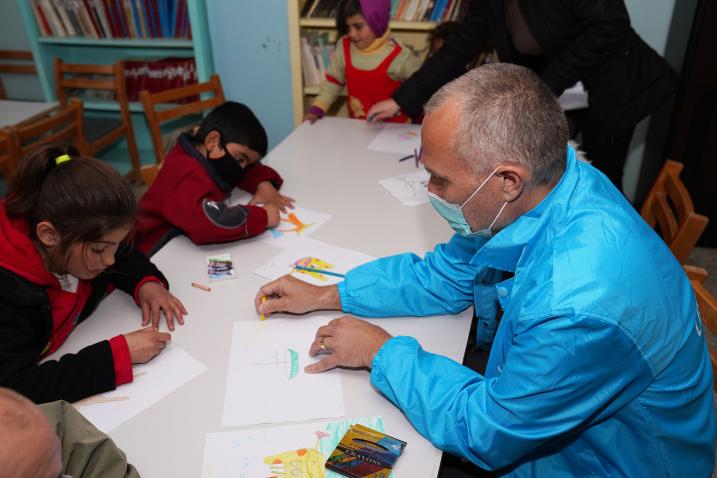
Bo Viktor Nylund 24:15
I mean, of course, you have to maintain professionalism. And I learned that very early on in UNHCR. Because there, much more than in UNICEF, you work on individual cases. And I processed cases for refugee status determination. And so, you know, you're sitting across the table with people who are applying for asylum, and you have to distance yourself to make a professional decision about that particular situation. And so, I think it was a really good exposure, you know, starting more with the individual level to keep, in a way, distance. Because you have to. You cannot become involved in every single individual's life situation because you’ll collapse by the time you get home.
Melissa Fleming 24:57
Where was that, that you were?
Bo Viktor Nylund 24:59
In Kenya. I started my career with the… And that was ‘94,’95,‘96. So, after the Rwanda genocide, with a lot of Rwandese, Burundians. And of course, you had Somalis, and Sudanese, South Sudanese, and some Ethiopians.
Melissa Fleming 25:20
So, all of those stories were harrowing, I can imagine.
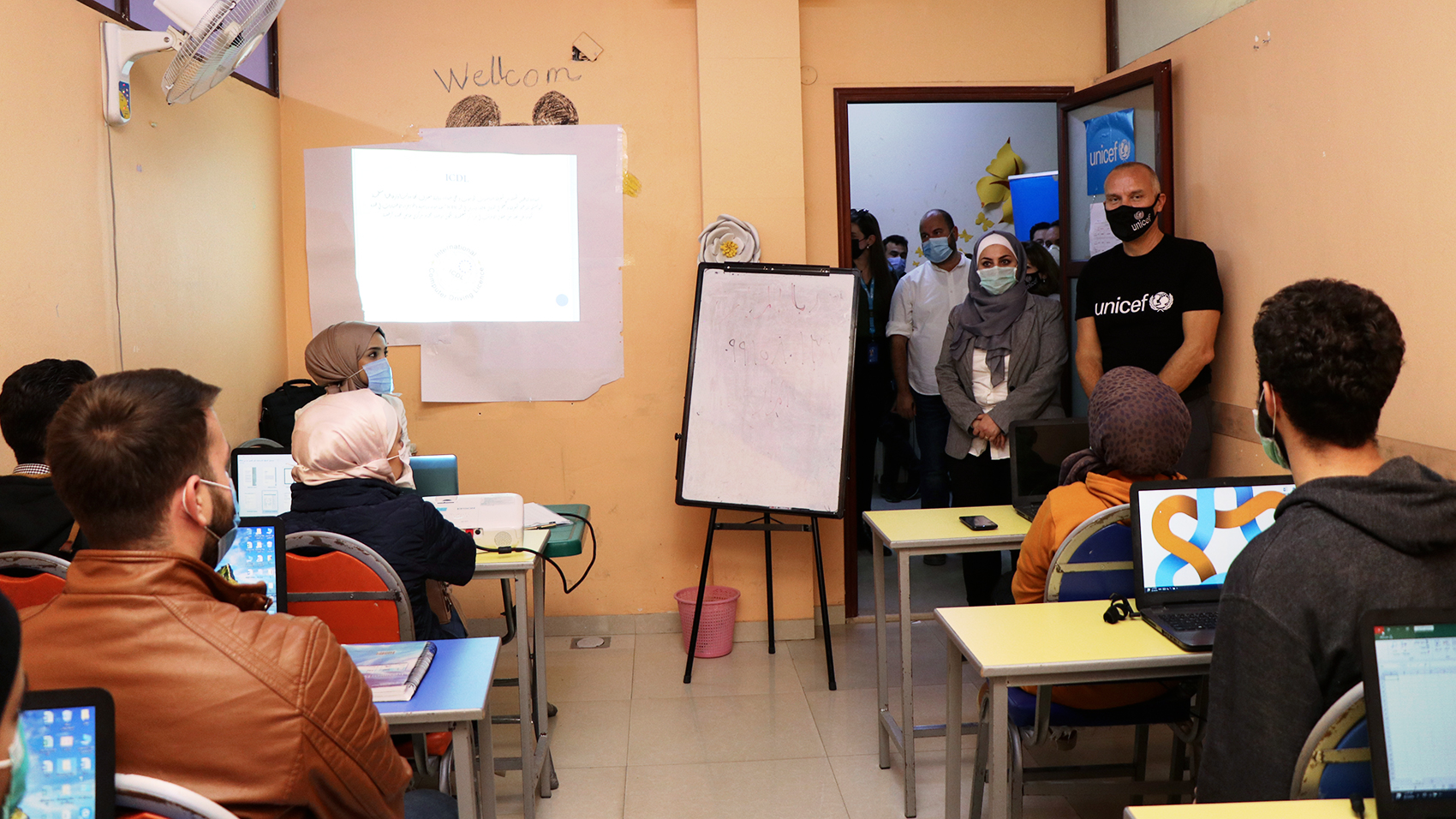
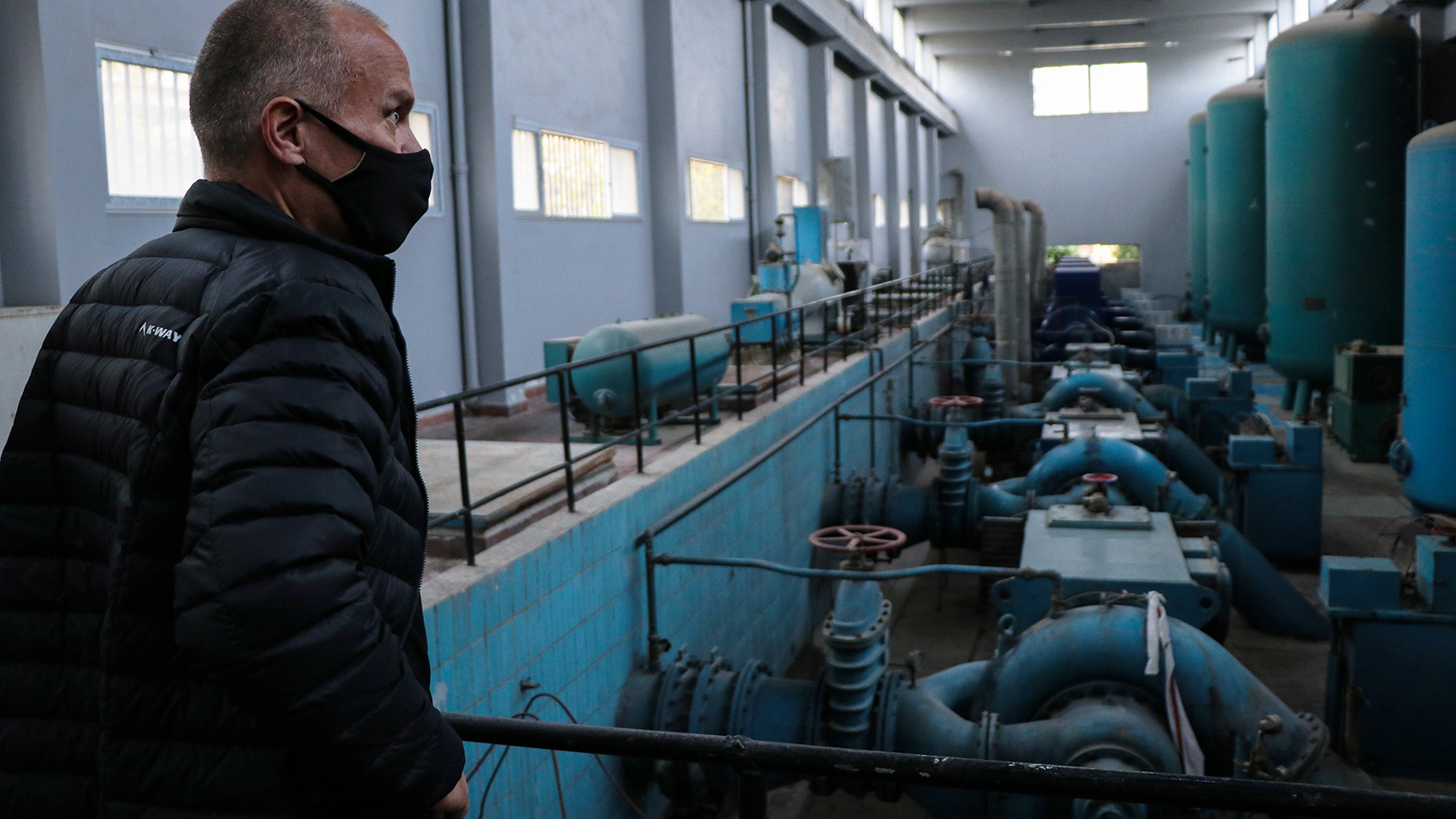
Bo Viktor Nylund 25:23
And sometimes such difficult decisions to make. And, you know, sometimes needing to see them many times because, you know, there were complicating backgrounds that called for, you know, understanding better. And even, you know, legally complex, because, like, I remember one, Ethiopian asylum seeker who had hijacked the plane. So, you know, in order to seek asylum in another country. And so, you have committed an international crime, and you have steered the plane in a different direction to go to Kenya. And that was, I think, one of my most complicated cases.
Melissa Fleming 26:03
That sounds like it. And I'm sure with the Rwandans it was also complex because there were the perpetrators and many of the perpetrators were among those fleeing.
Bo Viktor Nylund 26:13
Yes. And many of them tried to seek asylum and resettlement and so we had… Became very complex. You had to look at, you know, the individuals name and start comparing with lists that had been developed by human rights organizations. And, you know, look at what is the likelihood of this person being the one that has been involved in war crimes, crimes against humanity. And, yeah, very, very complex and difficult decisions to make. But coming back to your question, you really have to take care of yourself. And family, of course, has been one good escape. You know, when you have kids at home, when you come home, you’ve got to read them a book, and you know, you have to put the computer away. I'm also lucky in the sense that I'm very… I have an easy time switching on and off. So, I can…You know, if I see that a message has come that I have to do something about, I can do it. And then I can immediately switch off and go back to my, let's say, personal life. So, I don't have to have that stark need of segregating it a lot. If you're well organized then most of the time, you can also take a break. Even if you're working in emergencies. Nobody can work 24/7. It's not possible. So, you have to take care of yourself physically, mentally. And also make sure that… Better if you're well organized, because then you can also enjoy some of the time watching a movie or getting some exercise. And sleeping because that's very important.
Melissa Fleming 27:50
I just want to thank you, Viktor, for joining us on Awake at Night. And thank you for your service for the children of Syria. Thank you.
Bo Viktor Nylund 27:59
Thank you, Melissa. It's been a great honour to be part of your podcast series.
Melissa Fleming 28:05
Thank you for listening to Awake at Night. We'll be back soon with more incredible and inspiring stories from people working to do some good in this world at a time of global crisis.
To find out more about the series and the extraordinary people featured, do visit un.org/awake-at-night. On Twitter, we’re @UN and I'm @melissafleming. Subscribe wherever you get your podcasts and please do take the time to review us. It helps more people find the show.
Thanks to my editor Bethany Bell, to Jen Thomas, Adam Paylor and the team at Purpose and to my colleagues at the UN: Roberta Politi, Katerina Kitidi, Geneva Damayanti, Tulin Battikhi, Bissera Kostova and the team at the UN studio. The original music for this podcast was written and performed by Nadine Shah and produced by Ben Hillier.

